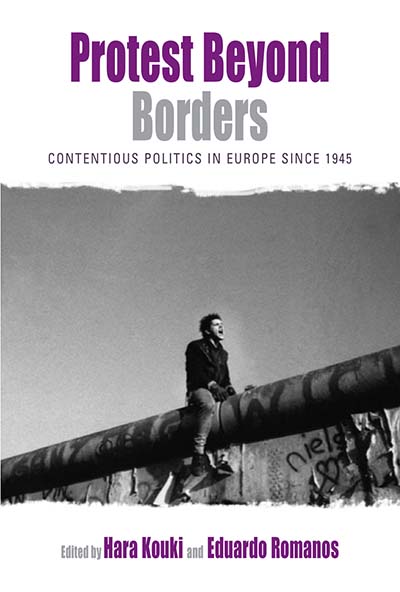Protest beyond Boders: Contentious Politics in Europe since 1945, recently published in paperback, examines protest culture since the second World War from a variety of angles — historical, political, social, and cultural. But much has changed in worldwide politics since the volume’s original March 2011 publication. Below, the editors reflect on how the reality of the political protest sphere has renewed interest in studying the underlying theories of social movements.
___________________________________________________

In recent years, we have been all caught by surprise. A sudden outbreak of confrontations and protests erupted in unrelated places, such as Bulgaria, Spain, Greece, Hungary and beyond Europe, in Tunisia, Egypt, Thailand, United States and Brazil. Most often lacking clarity in terms of organization, membership, protest demands and goals, this rise of contention erupting across the globe is far from completed. Something new is unfolding, which could not have been predicted and cannot easily fit in our categories of thinking and classifying the world.
The economic crisis seems to have brought along an intensification of contention, innovative non conventional forms of social conflicts and an overwhelming challenge of dominant discourses and mainstream politics. Groups of people become more visible and interconnected, social media create different and unexpected networks and events, while journalists and politicians most often condemn such disruptions of public life. But citizens as a whole — even when participating or empathizing with the protesters — remain puzzled as to how all this discontent and contentious activity is explained.
Used to perceive protest in clear cut analytical categories, social scientists found themselves in an awkward position, too — especially protest scholars. In an attempt to explore and explain collective mobilization in the form it unfolded in the previous years, social movement discipline tended to focus more on the micro level and on national case studies; at the same time, comparative research and exchange between disciplines was often lacking in the analysis of conflictual events. Current realities, however, seem to have renewed the interest of students and researchers in protest theory, research on past and current movements begins to increase and scholars embark upon broader and interdisciplinary projects enriching or even challenging previous analyses. In an attempt to catch up with what is going on around the world, social movement studies are undergoing constant transformation.
Protest beyond Borders was published three years ago, when normality was in some cases disrupted by protests; this edited volume, however, had expressed — already during those ‘peaceful’ times — the need for a different understanding of contentious politics beyond strictly defined case studies and repertoires of protests. By adopting an interdisciplinary approach to protest that extended back in 1945, this volume managed to offer new insights into social movement research. Three years later it seems that we inhibit a different world, in which contention is becoming an everyday reality. It is by now urgent thus to emphasize the role of protest and conflict not as an exception, but as an integral part of democracy. Revisiting Protest beyond Borders under this new light, we are reminded of the importance to connect the movements’ past, present and future to the transformations taking place. The paperback edition of the volume then calls for a wide range understanding of social change. While society is moving faster than we can grasp, there is a great need to bridge the movements in which we are immersed with the scientific social theory that seeks to analyze them.
__________________________________________
Hara Kouki is a historian and a PhD candidate in the Law Department at Birkbeck College, London. She has co-edited The Greek Crisis and European Modernity (Palgrave, 2013). Previous affiliated researcher with ELIAMEP (Athens, Greece), Hara currently holds a Research Assistant position at the European University Institute, Robert Schuman Centre for Advanced Studies, Florence, Italy.
Eduardo Romanos is a Ramón y Cajal Fellow in the Department of Sociology I at the Universidad Complutense de Madrid. He received his PhD in Political and Social Sciences from the European University Institute in Florence.
Volume 5 of Protest, Culture & Society
